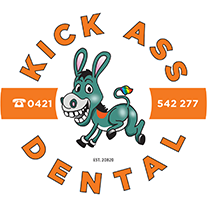Will Tooth Nerve Pain Go Away on Its Own?
Understanding Tooth Nerve Pain
Tooth nerve pain, also known as dental pulp pain or pulpitis, is a common dental issue that can cause severe discomfort. It occurs when the dental pulp, which contains nerves and blood vessels, becomes inflamed or irritated. The dental pulp is located in the center of the tooth and is surrounded by protective layers of enamel and dentin. When these protective layers are compromised due to cavities, cracks, or trauma, bacteria can enter the pulp, leading to inflammation and pain.
The severity of tooth nerve pain can range from mild sensitivity to excruciating, throbbing pain. In some cases, the pain may come and go, while in others, it may be persistent and relentless. If you are experiencing tooth nerve pain, you may wonder whether it will go away on its own or if you need to seek dental treatment. Let’s explore this question further.
Factors Affecting the Outcome
The resolution of tooth nerve pain depends on several factors, and each case is unique. Some key factors that can influence the outcome include:
1. The Underlying Cause of Pain
The cause of tooth nerve pain is a significant determinant of whether it will resolve on its own. If the pain is due to minor sensitivity caused by enamel erosion or gum recession, it may subside with time and proper oral hygiene. However, if the pain is caused by a deep cavity, dental infection, or dental trauma, it is unlikely to go away without treatment.

2. Timely Intervention
Seeking prompt dental care plays a crucial role in determining whether tooth nerve pain will go away on its own. Ignoring the pain or delaying treatment can worsen the condition and increase the likelihood of irreversible damage to the dental pulp. Early diagnosis and intervention can improve the chances of saving the tooth and relieving the pain.
3. Individual Healing Capacity
Each individual’s body responds differently to dental issues. Some people may have a robust immune response that can combat the inflammation and heal the dental pulp naturally. On the other hand, some individuals may have a weaker immune response, making it challenging for the body to resolve the pain without dental intervention.
When to Wait and Watch
In certain situations, you may be able to wait and watch if you experience mild tooth nerve pain. However, it is essential to remain vigilant and monitor the situation closely. Consider the following scenarios where waiting might be an option:
1. Sensitivity to Hot or Cold
If you have occasional sensitivity to hot or cold foods or beverages, it may not be a cause for immediate concern. Mild sensitivity can occur due to factors such as enamel erosion or gum recession, which can expose the sensitive dentin layer. Using toothpaste designed for sensitive teeth and avoiding extreme temperatures may help alleviate the discomfort.
2. Recent Dental Procedures
If you’ve recently undergone dental work, such as fillings or crowns, it is not uncommon to experience mild sensitivity in the treated tooth. In many cases, this sensitivity subsides within a few weeks as the tooth adjusts to the restoration.
3. Gum Irritation
Sometimes, tooth nerve pain can be mistaken for gum pain. If you notice redness, swelling, or tenderness in the gum tissue around the affected tooth, it might be a sign of gum irritation rather than nerve pain. Improving oral hygiene and using a saltwater rinse can help soothe gum irritation.

When to Seek Professional Help
If your tooth nerve pain is persistent, severe, or accompanied by other concerning symptoms, it is crucial to seek professional dental care immediately. Some indications that you should not ignore include:
1. Prolonged Pain
If your toothache lasts for more than a day or two and shows no signs of improvement, it is essential to consult a dentist. Prolonged pain could be a sign of an underlying issue that requires treatment. For a croydon dental place see this.
2. Swelling or Abscess
Swelling in the gums or face, along with a persistent bad taste or odor in the mouth, may indicate a dental abscess. An abscess is a severe infection that requires immediate dental attention.
3. Pain with Chewing or Biting
Pain that worsens when you chew or bite down suggests that the dental pulp is inflamed and requires treatment.
4. Fever and Malaise
Systemic symptoms like fever, chills, or a general feeling of sickness may be associated with a severe dental infection. In such cases, seeking urgent dental care is vital to prevent the spread of the infection.
Treatment Options
Dental professionals have various treatment options to address tooth nerve pain, depending on the underlying cause and severity of the condition. Some common treatment approaches include:
1. Dental Fillings
For small cavities that cause tooth sensitivity, a dental filling may be sufficient to restore the tooth and alleviate the pain.
2. Root Canal Therapy
If the dental pulp is infected or severely inflamed, root canal therapy may be necessary to remove the damaged pulp and save the tooth.
3. Extraction
In cases of extensive tooth decay or trauma where the tooth cannot be saved, extraction may be the only option to relieve pain and prevent further complications.
4. Antibiotics
If an infection is present, antibiotics may be prescribed to control the spread of bacteria and reduce inflammation.
Conclusion
In conclusion, whether tooth nerve pain will go away on its own depends on the underlying cause and the individual’s healing capacity. Mild sensitivity due to enamel erosion or gum recession might improve with time and proper oral care. However, persistent or severe tooth nerve pain requires professional dental evaluation and intervention. It is essential to seek timely dental care to address the root cause of the pain and prevent further complications. Remember to maintain good oral hygiene, attend regular dental check-ups, and address any dental concerns promptly to keep your teeth and gums healthy and pain-free.





